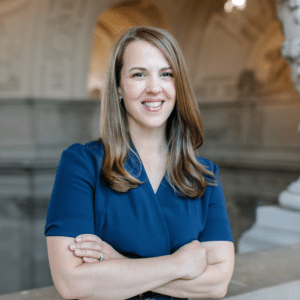By ProFellow Founder, Dr. Vicki Johnson
We’ve all been there.
You: “Thanks for meeting with me. I am planning to apply to [insert fellowship/grant/ job/ graduate school/leadership opportunity]. You’ve provided me incredible mentorship during my time here. I hope that I have exceeded your expectations. Would you be willing to serve as my reference?”
Boss: “Sure, happy to! When do you need it by?”
You: “By October 1. It can be submitted online.”
Boss: “Great. Well, I’m [curing cancer/traveling to Antarctica/training for an Iron Man/winning a Nobel Peace Prize/space exploring]. Could you please draft me the letter and email me the instructions on where to send it? Of course I will edit it and my assistant will be sure it arrives by October 1. Thanks for your help!” [Insert pat on the shoulder as you are shuffled out the door].
Now what?
It’s very uncomfortable to be asked to draft your own a recommendation letter, but in the ever-demanding workplace, this practice has become common. I have experienced this myself, and a poll we conducted in ProFellow’s May newsletter found 79% of respondents had been asked to prepare a draft of their own recommendation letter by a referee.
A big problem is that a lot of people are not aware that this practice may violate established ethics rules or expectations of the fellowship program or university. For example, the National Association of Fellowship Advisors (NAFA) code of ethics states that fellowship applicants should “Neither compose their own letters for faculty to sign (even at the request of faculty) nor ask faculty members to show them their own letters of recommendation.” Some graduate schools, like Stanford Business School, also bar this practice by applicants.
And yet it still occurs and unfortunately, the ethics burden is on the applicant. Some suggest that applicants simply say no to a referee who requests a draft, but many young professionals and students feel equally uncomfortable pushing back or have few to no appropriate alternatives for a reference. There’s also the fear that the busy referee’s undertaking will result in a letter with less detail or thoughtfulness than desired. Or worse, they will simply roll their eyes and say, “Don’t worry, I’ll be discreet” (yes, it’s happened).
But fear not. There are a few things you can do if you are faced with this scenario.
First, you can let him or her know that your drafting the letter would be in violation of the fellowship or university’s ethics guidelines.
You can also provide her or him a business letter template and the details they need to complete the letter – in their own words – in a timely manner.
What to Prepare
Provide the following in editable Word documents. The components should include:
- The business letter template: Prepare a business letter that includes the fellowship address, date, Re:, and salutation including the name of the person it should be addressed to. I like to add [please add to letterhead] at the top. Also add “Sincerely,” and under this, [please add signature].
- Brief fellowship details: In a separate document, add the name of the fellowship, a few sentences on what it is, and a URL to where the referee can read more about the program
- Referee questions and instructions: Add the referee questions in list form. If the referee question is in paragraph form, break it out into bullet points so no point is missed. For example, if you are applying to the Herbert Scoville Jr. Peace Fellowship, lay out the directions like this:
Each letter should address
- the accomplishments and standing of the candidate;
- the candidate’s interest and experience in international peace and security issues;
- the candidate’s ability to communicate, both orally and in writing;
- the candidate’s maturity and judgment, and
- the candidate’s potential to make a significant contribution to peace and security issues.
Reference letters must be submitted as an attached Word or PDF document rather than in the body of the email.
- Your accomplishments and examples: These should be in bullet points under each “question” so that the referee can refer to them as they respond to the questions. Keep these factual – add examples of accomplishments, projects you’ve worked on, things you’ve spearheaded, personal interests, etc. Do not add bullet points about things that are subjective, such as your personal characteristics. For example, if the request is “please comment on the candidate’s maturity and judgment,” do not add a bullet point “mature beyond his years” or some other opinion – that’s for your referee to decide! (And plus, you’ll sound ridiculous.)
You’ll want to email these documents to your referee, as well as any necessary supporting documents, such as your resume and project proposal.
How to Follow Up
Do not ask to see the final letter. It’s important that the final letter remain confidential and this may be expected by the selection committee.
The reference letter template provides the referee a one-stop shop of information to do their job – they don’t need to search for the address, or the questions, or details about the fellowship you are applying to – it’s all right there. And the bullet points will be reminders of what the referee can include as examples, which they can use as they see fit. Laying this groundwork will save your referee time without violating ethics rules about drafting your own recommendation letter.
Follow up with your reference a week or so before the recommendation letter is due to make sure your letter has been sent. Once sent, be sure to thank your referee! And let them know if you are ultimately successful.
Need more tips on preparing your fellowship application? See our Step-by-Step Guide For A Competitive Fellowship Application.

Dr. Vicki Johnson is Founder and CEO of ProFellow, the world’s leading online resource for professional and academic fellowships. She is a four-time fellow, top Ph.D. scholar, Fulbright recipient and an award-winning social entrepreneur. She is the Creator and Director of Fully Funded, an award-winning online course and mentorship program for graduate school applicants seeking to find and win full funding.
© Victoria Johnson / ProFellow, LLC 2016, all rights reserved.
